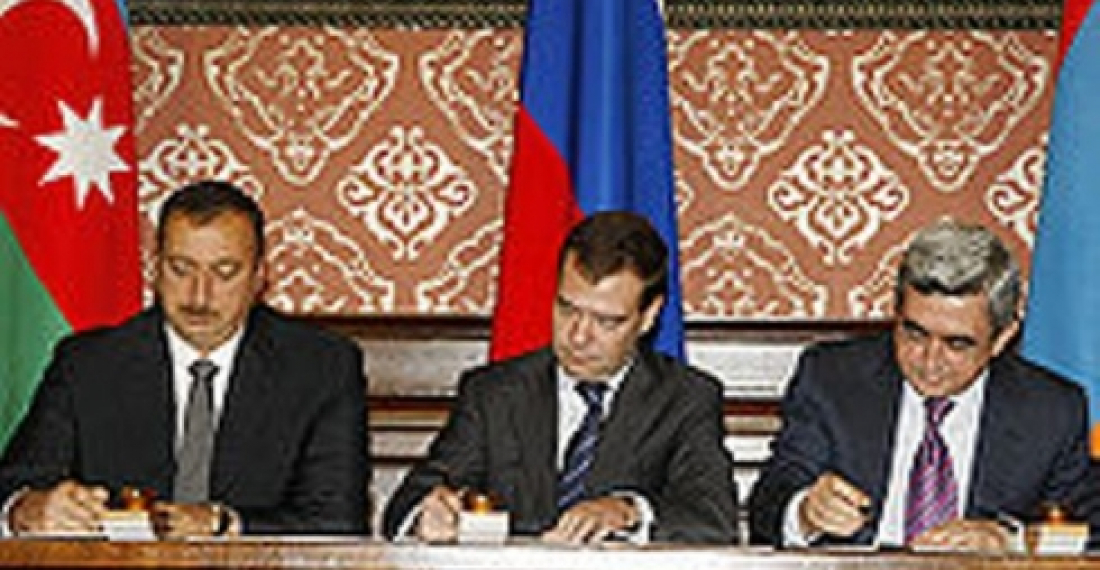The meeting of the Presidents of Armenia and Azerbaijan in Kazan on June 25 is being talked up as a possible moment of breakthrough on the Karabakh conflict
The Presidents of Armenia and Azerbaijan will meet in Kazan on 25 June at the invitation of the Russian President Dimitri Medvedev in the latest attempt to resolve the conflict over Nagorno-Karabakh. This will be the latest in a series of summits involving the three Presidents that have taken place since they signed the Moscow declaration on 2 November 2008, pledging to work for the resolution of the conflict.
Since than there have been few signs of progress in the negotiations, and many observers consider that the situation on the ground has in fact deteriorated and made the possibility of an outright resumption of the conflict more likely. Kazan may therefore provide the last chance for the current negotiations format, which is led by three OSCE countries, France, the United States and Russia, known as the Minsk Group co-Chair. Since 2008 Russia has played the role of primus inter pares in the troika, and President Medvedev has invested a lot of time and personal political prestige in the process.
Realistically what can be achieved in Kazan is only symbolic. The two sides may agree on the set of principles that have been discussed and negotiated for a number of years. This will open the way for more negotiations around a detailed peace plan. It is hoped however that if there is agreement on the principles this would defuse the tense situation on the line of control, enable confidence building measures to be implemented, and start the long and arduous road to peace.
Agreement on the principles will not be easy, since Azerbaijan's demands for territorial integrity need to be reconciled with Armenia's demands for self determination for the people of Karabakh. Some say that the two principles are not reconcilable and that discussing these basic principles as a prerequisite has been a false strategy. However diplomats are now hopeful that they have been able to find language that is ambiguous enough to be accepted by both sides.
All eyes will therefore be on Kazan, because the stakes are high and failure may increase further the tensions. Diplomats therefore talk of "hope" but experience of the negotiations has taught them not to talk of "optimism".
report prepared by commonspace.eu editorial team
photo: Presidents Aliev, Medvedev and Sargsyan signing the Moscow declaration on 2 November 2008.







